#sex race and class
Text
Traditionally, in American society, it is the members of oppressed, objectified groups who are expected to stretch out and bridge the gap between the actualities of our lives and the consciousness of our oppressor.
For in order to survive, those of us for whom oppression is as American as apple pie have always had to be watchers, to become familiar with the language and manners of the oppressor, even sometimes adopting them for some illusion of protection.
Whenever the need for some pretense of communication arises, those who profit from our oppression call upon us to share our knowledge with them. In other words, it is the responsibility of the oppressed to teach the oppressors their mistakes.
I am responsible for educating teachers who dismiss my children's culture in school. Black and Third World people are expected to educate white people as to our humanity. Women are expected to educate men. Lesbians and gay men are expected to educate the heterosexual world.
The oppressors maintain their position and evade responsibility for their own actions. There is a constant drain of energy which might be better used in redefining ourselves and devising realistic scenarios for altering the present and constructing the future.
Audre Lorde, Age, Race, Class and Sex: Women Redefining Difference
Paper delivered at the Copeland Colloquium, Amherst College, April 1980
Reproduced in Sister Outsider
Audiobook of Sister Outsider
#feminism 101#audre lorde#quotes#sister outsider#age race class and sex: women redefining difference#age race class and sex#thatdiabolicalfeminist
70 notes
·
View notes
Text
Magic realism | Definition, Authors, & Facts | Britannica
magic realism, chiefly Latin-American narrative strategy that is characterized by the matter-of-fact inclusion of fantastic or mythical elements into seemingly realistic fiction.



Some scholars have posited that magic realism is a natural outcome of postcolonial writing, which must make sense of at least two separate realities—the reality of the conquerors as well as that of the conquered.
#the bear meta#I read a review of someone calling this “vibes” over substance LOL#no the whole show is obsessed with this idea#constantly bringing up how perceptions of reality are disorted#how it intersects at class race sex colonialism and imperialism
8 notes
·
View notes
Text
Recommended Books
This page provides a list of recommended books about prostitution, pornography, the global sex trade, and surrogacy.
Prostitution
Pornography
Surrogacy
By and for men
Sex dolls
Prostitution
ANY GIRL by Mia Döring

“Any Girl is a ferociously honest, intensely tender and utterly unforgettable book that is as thought-provoking as it is timely.”
BODY SHELL GIRL by Rose Hunter

“Body Shell Girl is incredible. It is a captivating and honest account of a woman’s experiences, thoughts, and feelings in the sex trade.” – Cherry Smiley
The Sex Economy by Monica O’Connor
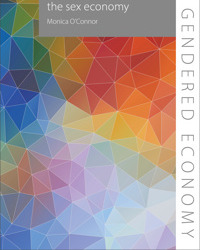
Drawing on extensive research, O’Connor challenges the idea that the sale of women’s bodies as commodities is acceptable and that men have a right to buy sexual acts from another person. She shows that ‘sex work’ is not a lucrative occupation for impoverished women and girls, and exposes the harm that normalising the sex trade does on women’s lives, gender equality and society as a whole.
Being and Being Bought by Kajsa Ekis Ekman
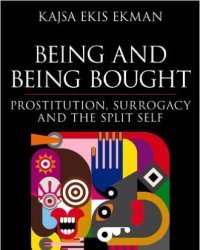
“This is a riveting analysis of prostitution and surrogacy that shatters the great wall of lies about these two institutions. Brilliantly analyzing the parallels, Kajsa Ekis Ekman wages a multi-pronged attack on sexism and classism that leaves the reader with hope for change.” Melissa Farley, PhD.
See: A brief history of the ‘Sex work is work’ movement
Paid For: My Journey Through Prostitution by Rachel Moran
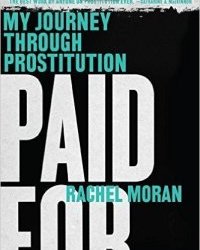
“The best work by anyone on prostitution ever, Rachel Moran’s Paid For fuses the memoirist’s lived poignancy with the philosopher’s conceptual sophistication. The result is riveting, compelling, incontestable. Impossible to put down. This book provides all anyone needs to know about the reality of prostitution in moving, insightful prose that engages and disposes of every argument ever raised in its favor.” Catharine A. MacKinnon
Last Girl First! Prostitution at the intersection of sex, race & class-based oppressions
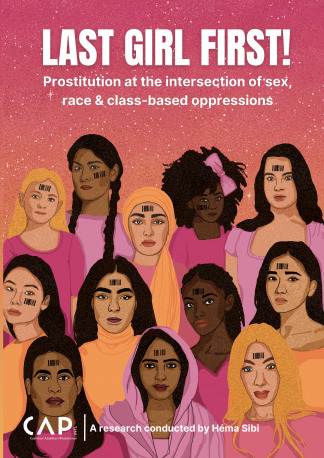
A study into how all over the world and throughout history, women and girls from the most discriminated communities are over-represented in prostitution. Poor, Indigenous, migrant, asylum-seeking, displaced women, those from the lowest castes and from ethnic, religious and racial minorities are the first victims of pimps and sex buyer
Pimp State: Sex, money and the future of equality by Kat Banyard
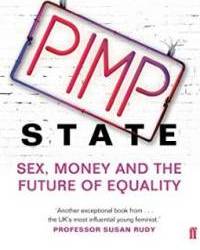
Skilfully weaving together first-hand investigation, interviews and the latest research, Pimp State powerfully argues that sex trade myth-makers will find themselves on the wrong side of history.
Prostitution Narratives: Stories of Survival in the Sex Trade edited by Melinda Tankard Reist and Caroline Norma
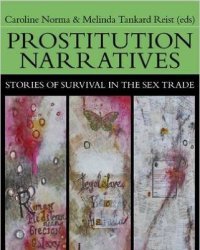
This book documents the reality of prostitution through the lived experience of women who have survived it.
Exit! by Grizelda Grootboom

Grizelda Grootboom’s life was dramatically changed when she was gang raped at the age of nine by teenagers in her township. Her story starts there. It is a story about the cycle of poverty, family abandonment, dislocation and survival in the streets of Cape Town. She reveals the seedy and often demonised life of a prostitute and her ultimate escape from it.
Read our review >>
Body for Rent by Anna Hendriks and Olivia Smit

Childhood best friends Anna and Olivia were just 15 years old when they met Ricardo. He was older, charming and good-looking – and Anna and Oliva were easy prey. Manipulated, groomed and abused, within three years he had pimped the girls into the neon-lit windows of Amsterdam’s red light district.
Read our review >>
Shadow’s Law: The True Story of a Swedish Detective Inspector Fighting Prostitution by Simon Häggström
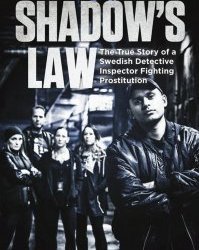
Detective inspector Simon Häggström is head of the Stockholm Police Prostitution Unit. He tells the true stories of the people he meets every day; young girls facing dangers they did not foresee, seven foreign women working and living together in a one bedroom apartment, Lovisa, born into a life of drugs and prostitution, and of course, the men who buy sex.
Not a choice, Not a job by Janice G Raymond
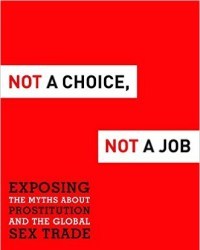
“This book dispels the smoke and mirrors and uncovers the horrific and complex truths of prostitution and the global sex trade. This is a must read for those who want to understand the facts about the harsh realities that so many experience.” Vednita Carter
The Pimping of Prostitution: Abolishing the Sex Work Myth by Julie Bindel
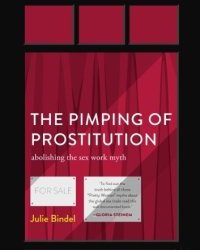
“Bold, brilliant and brave. This is Julie Bindel at her best, demolishing the myths around prostitution and asking us to listen to survivors, the women and men who know the ugly reality first-hand.” Joan Smith
The Nordic Model by Trine Rogg Korsvik and Ane Stø
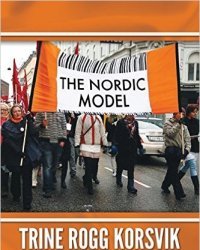
In this book, feminists activists write about their enduring struggle for the abolition of prostitution. The authors offer valuable insights into the movement’s strategies, as well as its allies and opponents. The book unmasks the pro-prostitution lobby and confronts the myth that the Nordic model is harmful to women in prostitution.
River of Flesh and Other Stories edited by Ruchira Gupta
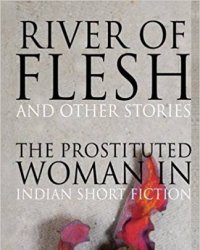
Twenty-one stories about trafficked and prostituted women by some of India’s most celebrated writers: Amrita Pritam, Bibhutibhushan Bandyopadhyay, Indira Goswami, Ismat Chughtai, J. P. Das, Kamala Das, Kamleshwar, Krishan Chander, Munshi Premchand, Nabendu Ghosh, Qurratulain Hyder, Saadat Hasan Manto and Siddique Alam, among others.
Not for Sale: Feminists resisting prostitution and pornography edited by Christine Stark and Rebecca Whisnant
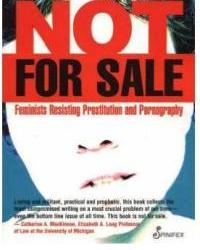
This collection of essays connect feminist perspectives on the sex industry with radical critiques of racism, poverty, militarism, and unbridled corporate capitalism, and shows how the harms of prostitution and pornography are amplified by modern technologies.
The Natashas: Inside the new global sex trade by Victor Malarek

They’re the third most profitable black market commodity, after illegal weapons and drugs. They are women and girls, some as young as 12. They are sold into prostitution and kept enslaved; those who resist are beaten, raped, and sometimes killed as examples. In many cases, the men who should be rescuing them –from immigration officials to police officers and international peacekeepers – are among their aggressors.
The Johns: Sex for sale and the men who buy it by Victor Malarek

This book dispels the myths that justify prostitution and puts on display the rationales of ordinary johns, their beliefs, their behaviours, and their astounding brotherhood. It also shows us the darker side: the rise of sex tourism, the predators, the role of the Internet. Lambasting the pro-prostitution lobby, he explains why legalising prostitution can lead only to the greater enslavement of women.
The Industrial Vagina by Sheila Jeffreys

“This is an insightful analysis into the globalization and industrialization of the modern sex industry. Sheila Jeffreys makes the connections between prostitution, marriage, pornography, strip clubs, and sex tourism and how they all combine to exploit women who are most harmed. This book opens a window on global sexual exploitation and the institutions that support it.” Janice G. Raymond
The Idea of Prostitution by Sheila Jeffreys
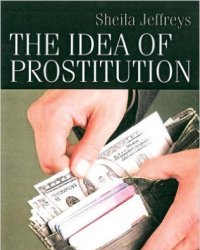
This book investigates the claims of the pro-prostitution movement and the burgeoning sex industry, arguing that the sex of prostitution is not just sex; the work of prostitution is not ordinary work; and prostitution is a choice for the men who abuse rather than for the prostituted women.
See The Idea of Prostitution: Q&A with Sheila Jeffreys and Rose Hunter.
And Life Continues: Sex Trafficking and My Journey to Freedom by Wendy Barnes
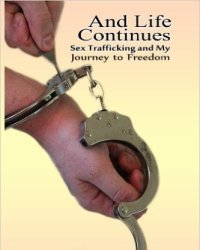
Wendy Barnes was introduced to sex trafficking by her first love, the father of her children. And Life Continues is her story: how she became a victim of human trafficking, why she was unable to leave the man who enslaved her for fifteen years, and the obstacles she overcame to heal and rebuild her life after she was rescued.
Pornography
Pornland: How porn has hijacked our sexuality by Gail Dines
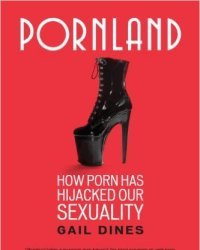
“Dines brilliantly exposes porn’s economics, pervasiveness, and impact with scholarship as impeccable as her tone is reasonable. This book will change your life. Ignore it at your peril.” Robin Morgan
He Chose Porn Over Me edited by Melinda Tankard Reist
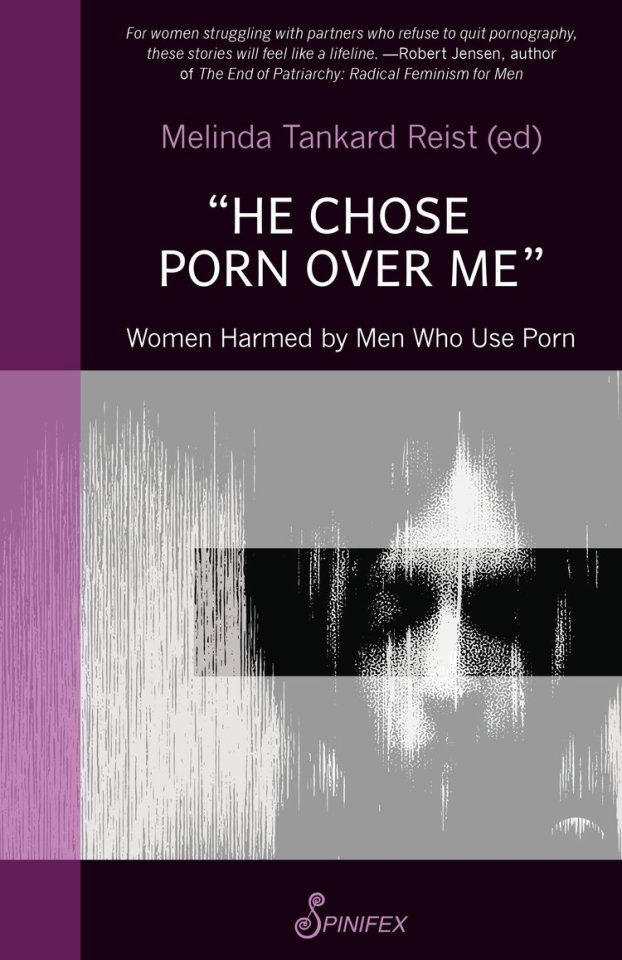
“Shattering the popular myth that porn is harmless, the personal accounts of 25 brave women in “He Chose Porn over Me” reveal the real-life trauma experienced by women at the hands of their porn-consuming partners – men who were supposed to care for them.”
Read our review >>
Your Brain on Porn by Gary Wilson
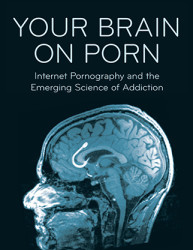
“Your Brain on Porn is written in a simple clear language appropriate for expert and layperson alike and is rooted firmly within the principles of neuroscience, behavioural psychology and evolution theory … As an experimental psychologist, I have spent over forty years researching the bases of motivation and I can confirm that Wilson’s analysis fits very well with all that I have found.” Professor Frederick Toates, Open University.
Read our review >>
Big Porn Inc: Exposing the Harms of the Global Porn Industry edited by Abigail Bray and Melinda Tankard Reist
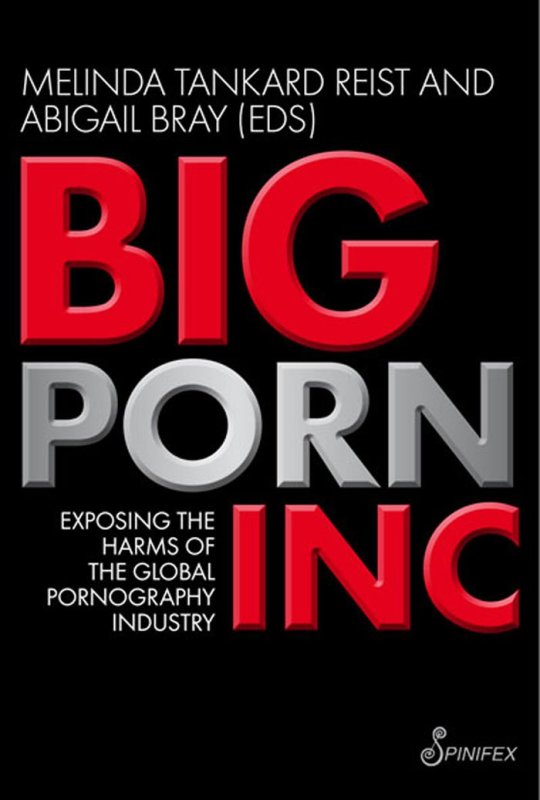
“With contributions from leading world experts and activists, Big Porn Inc offers a cutting edge exposé of the hidden realities of a multi-billion dollar global industry that promotes itself as a fashionable life-style choice.
“Unmasking the lies behind the selling of porn as ‘just a bit of fun’ Big Porn Inc reveals the shocking truths of an industry that trades in violence, crime and degradation. This fearless book will change the way you think about pornography forever.”
Getting Off: Pornography and the End of Masculinity by Robert Jensen
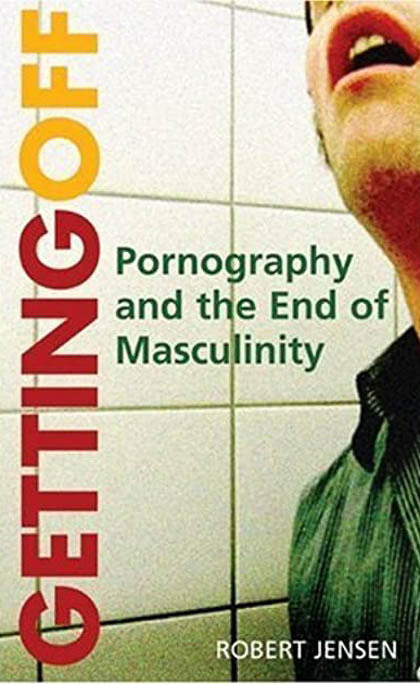
In our culture, porn makes the man. So argues Robert Jensen in Getting Off: Pornography and the End of Masculinity. Jensen’s treatise begins with a simple demand: “Be a man.” It ends with a defiant response: “I chose to struggle to be a human being.” The journey from masculinity to humanity is found in the candid and intelligent exploration of porn’s devastating role in defining masculinity.
You can download a free PDF of this book from Robert Jensen’s website.
Surrogacy
Surrogacy: A Human Rights Violation by Renate Klein

A radical feminist introduction to the reality of surrogacy as the commissioning / buying / renting of a woman into whose womb an embryo is inserted and who thus becomes a ‘breeder’ for a third party and how it is being heavily promoted by the stagnating IVF industry which seeks new markets.
Towards the Abolition of Surrogate Motherhood edited by Marie-Josèphe Devillers and Ana-Luana Stoicea-Deram
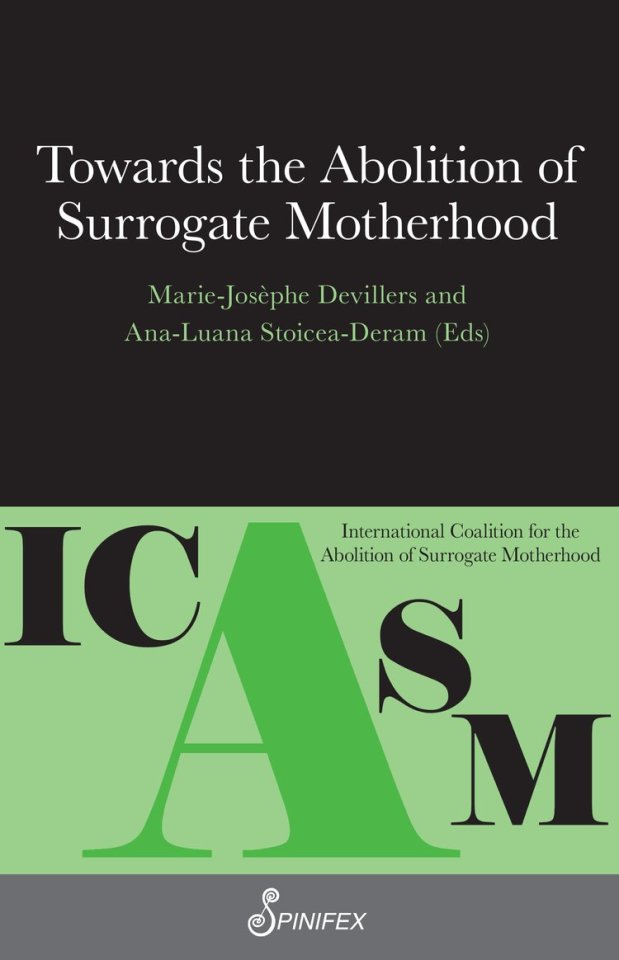
“In this eloquent and blistering rejection of surrogacy, a range of international activists and experts in the field outline the fundamental human rights abuses that occur when surrogacy is legalised and reject neoliberal notions that the commodification of women’s bodies can ever be about the ‘choices’ women make.”
Read our review >>
By and for men
The End of Patriarchy: Radical Feminism for Men by Robert Jensen
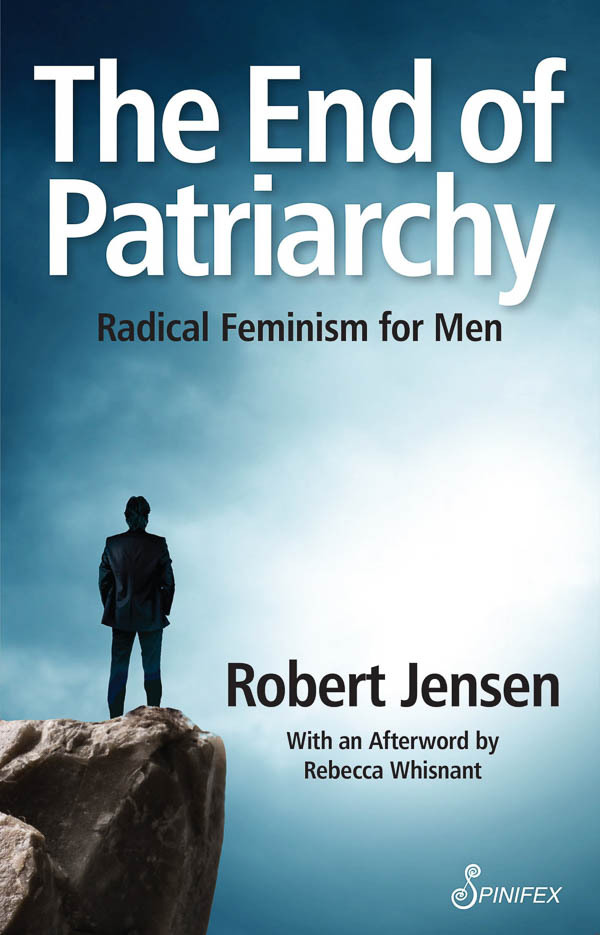
“The End of Patriarchy asks one key question: what do we need to create stable and decent human communities that can thrive in a sustainable relationship with the larger living world? Robert Jensen’s answer is feminism and a critique of patriarchy. He calls for a radical feminist challenge to institutionalized male dominance; an uncompromising rejection of men’s assertion of a right to control women’s sexuality; and a demand for an end to the violence and coercion that are at the heart of all systems of domination and subordination. The End of Patriarchy makes a powerful argument that a socially just society requires no less than a radical feminist overhaul of the dominant patriarchal structures.”
The Macho Paradox: Why some men hurt women and how all men can help by Jackson Katz
“With integrity and courage, Jackson Katz has taken his message – that the epidemic of violence against women is a men’s issue – into athletic terms, the military and frat houses across the country. His book explains carefully and convincingly why – and how – men can become part of the solution, and work with women to build a world in which everyone is safer.” Michael Kimmel.
Sex dolls
Sex Dolls, Robots, and Woman Hating by Caitlin Roper

“Sex Dolls, Robots and Woman Hating exposes the inherent misogyny in the trade in sex dolls and robots modelled on the bodies of women and girls for men’s unlimited sexual use. From doll owners enacting violence and torture on their dolls, men choosing their dolls over their wives, dolls made in the likeness of specific women and the production of child sex abuse dolls, sex dolls and robots pose a serious threat to the status of women and girls.”
The Macho Paradox: Why some men hurt women and how all men can help by Jackson Katz
“With integrity and courage, Jackson Katz has taken his message – that the epidemic of violence against women is a men’s issue – into athletic terms, the military and frat houses across the country. His book explains carefully and convincingly why – and how – men can become part of the solution, and work with women to build a world in which everyone is safer.” Michael Kimmel.
#Nordic model#Any Girl#Mia Döring#Body Shell Girl#Rose Hunter#The Sex Economy#Monica O’Connor#Being and Being Bought#Kajsa Ekis Ekman#Paid For: My Journey Through Prostitution#Rachel Moran#Last Girl First! Prostitution at the intersection of sex#race & class-based oppressions#Pimp State: Sex#money and the future of equality#Kat Banyard#Prostitution Narratives: Stories of Survival in the Sex Trade#Melinda Tankard Reist#Caroline Norma#Exit!#Grizelda Grootboom#Body for Rent#Anna Hendriks#Olivia Smit#Shadow’s Law: The True Story of a Swedish Detective Inspector Fighting Prostitution#Simon Häggström#Not a choice Not a job#Janice G Raymond#The Pimping of Prostitution: Abolishing the Sex Work Myth#Julie Bindel
7 notes
·
View notes
Text
people bringing up Wikipedia and fandom wikis to "prove" that one character is more centered in a story than another one like y'all....those sources are fan-created and fan-maintained and fandom in general is wildly racist and sexist. they will prioritize the white man over any other character every single time regardless of whether it's earned or not lmfao
#fandom#and this doesn't just go for the current debate I'm having#fandom (generally) treats issues of race sex sexuality class and disability like crap. this is not a new complaint
82 notes
·
View notes
Text

MMMMMM
#yeah yeah yeahhhhhh#bad sisters#a lot of good bits about the manufacturing of geography and setting to suit a white upper middle class aesthetic#and also#'The only significant character in the drama by contrast whose home is not on display is Matthew Claffin's.#For all its nods to inclusivity (Bibi is in a same-sex relationship and has a Black child; Ursula’s son has Down’s Syndrome#none of which is in the original) the series seems unable to imagine the younger mixed-race Claffin brother’s habitus.'#which then goes footnote - 'It would take another paper to interrogate Irish actor Darryl McCormack’s#positioning in Irish-set dramas but here it is hard not to see him as the tokenistic boyfriend of colour#whose character is there primarily to reflect well on Becka and her openness to Otherness.'#say that!
10 notes
·
View notes
Text
“One of the most ironic domains displaying the hyper-sexualization, or at least hyper-feminization, of women may be one of the more paradoxical ones — women’s sports. Women’s athleticism is rendered unthreatening and feminine whereas men’s athleticism is the real deal— masculine and strong. The process of feminizing the professional woman athlete tends to occur for white women athletes more readily than black women. Because African-American women have been historically denied access to full-time homemaking and deprived of sexual protection, black womanhood has not been tied in the same way as white womanhood to activities and attributes defined as distinctive and different from masculine attributes. Therefore, African-American women historically have been located outside dominant culture’s definition of conventional (white) femininity. African-American women athletes are seen as more conventionally athletic (i.e., masculine) than white women because black women’s strength does not threaten traditional notions of beauty and femininity (coded as white) in the same way that white women’s strength does. Therefore, media coverage of black women athletes is more about their athletic accomplishments compared to coverage of white women…The hyper-sexualization of women in post-feminism is indeed raced and classed.” - Kristin J. Anderson (Modern Misogyny: Anti-feminism in a Post-feminist Era)
#Kristin J. Anderson#Modern Misogyny: Anti-feminism in a Post-feminist Era#womanhood#feminism#black womanhood#women’s sports#hyper feminization#hyper sexualization#female athletes#misogynior#race sex and class#Modern Misogyny#dibs
36 notes
·
View notes
Text
university friendslessness so chronic when the “do you want to come join our christain club on campus???” people approached me i unironically considered it for like 20 seconds
#good god i need to make friends… been chatting to people in my classes but i just CANT break in#WHY ARE ALL THE CLUBS MAJOR SPECIFIC OR RACE CLUBS#‘’ohhh just join the gsa’’ WELL I WOULD BUT THEY DONT FUCKING MEET EVER#it exists but they dont just have casual meetings its always some shit like sex ed prom like#i am 21 i did not enjoy school dances when it made sense for me to be ag one#now u want me to attend the condom party AND out myself in one fell fucking swoop??? NO#like theres also all the fitness clubs but i am fat and bad at sports so WHAT NOW
6 notes
·
View notes
Note
Do you support prison abolition /paying prisoners a living wage / making being able to vote more accessible to everyone?
I like your stances and opinions and your jokes but I'm genuinely curious on this one.
(This is inspired by some of the comments under one of your posts talking about how we should just make democracy more livable under capitalism, and while I disagree with that being the ONLY thing we need to do, it does kinda make me think about how many people think we need to get better without abolishing prisons or at least treating our prisoners better than we are treating them currently.)
hi! i'm not sure which post you're referring to but I'm actually anti-capitalist. I think we need to dismantle capitalism as a system because it is inherently inhumane, working exactly as intended and therefore cannot be "fixed" without restructuring it entirely from the ground up; the devaluation of human labor and environmental destruction for profit is not a bug, it's a feature. i could delve into the kind of economic system that i think should replace it after dismantling it, however it's more of a thought exercise and until it becomes a plausible reality, i would rather focus on how we can make capitalism livable for the time being because we have no other choice. for example we could start by lowering rent, instituting a 4-day work week, and establishing support networks for homeless people. i'm not an economist so it's not like i have all the answers but according to the results from other countries who have applied these practices, it improves quality of life and the economy significantly.
as for prisons, i'm pro-abolition. you can check out my prison abolition tag for more information, but essentially prisons exist in this day and age as an industry that profits off of slave labor. many of our laws and their enforcers unfairly target minorities and lower class people, and the denial of convicts the right to vote is just another way our government strips vulnerable communities of their political power, autonomy, and supposedly inalienable rights. aside from the conviction of innocent people and people who did commit a crime but ultimately did no harm, i don't think it's the right of any individual (or government, for that matter) to imprison others. i think people tend to forget that "criminals" are human beings and deserving of the same rights as everyone else, and it is human nature to make mistakes. the important thing is the opportunity to do better. militarist propaganda has done an incredible job of convincing us that convicts are amoral and undeserving of our sympathy, turning society in general against them and destroying any sort of safety net they might have had or needed otherwise. and people are too busy clinging to the notion that criminals are subhuman and deserving of whatever punishment is dealt that they can't see that this is a slide into fascism, and that they can just as easily become "other" should they find themselves on the receiving end of the system. we are very close to living in a surveillance state, which means any minor offense or slip-up has the potential to completely decimate your chances at getting a job, applying for college, getting a loan, receiving housing, and especially being able to have a say in elections. it also makes you more likely to be arrested again on account of "suspected illegal activity", so your record follows you around for the rest of your life.
sorry this got so long but yeah, essentially capitalism and the prison industry are inhumane and should be abolished.
#voter suppression#prison abolition#militarism#capitalism#52018#racism#classism#1312#also before anyone brings up r/pe or other genuinely awful crimes that endanger people i have to posit the question:#how can we account for those crimes when the people arrested for them are are mainly minorities?#need i remind you that white women used to accuse black men of assault just to weaponize their white privilege?#to exert power over them out of fear or hatred? people convicted for violent crimes are disproportionately trans poor and POC#while the rest of people actually committing those crimes walk free because of the privileges of being cis/het/white/upper-class#and like. thats not to say that those crimes should go unrecognized. but the system we have and the people enforcing it are just not#capable of doing so fairly. they look for signs of abusive behavior in race. gender. sex. age. class. sexuality. religious beliefs.#very little investigation is performed and hardly any empirical data is used in ruling. if they cared about victims at all they would focus#on preventing abuse before it happens and giving us support and access to people and services who can help. as a victim and survivor#the gov did not give a shit about my abuse. we cant make a system built on suffering care about any of us.#and like. yall are so confident you'll be able to decide who is 'good' and who is 'bad' but you can't. its like the shit with amber heard.#everyone was so caught up in defending their favorite actor they disregarded a woman's account of her abuse and made her out to be crazy an#evil#and i know you think youre different and we can do it differently but it happens over and over and over again#tldr we cant use a system to prosecute the ''evil people of society'' that is built on defining those traits through a racist misogynistic#etc lens#if we could we wouldnt even be in this mess
13 notes
·
View notes
Text
On the other hand, white women face the pitfall of being seduced into joining the oppressor under the pretense of sharing power.
This possibility does not exist in the same way for women of Color. The tokenism that is sometimes extended to us is not an invitation to join power; our racial "otherness" is a visible reality that makes that quite clear. For white women there is a wider range of pretended choices and rewards for identifying with patriarchal power and its tools.
Today, with the defeat of ERA, the tightening economy, and increased conservatism, it is easier once again for white women to believe the dangerous fantasy that if you are good enough, pretty enough, sweet enough, quiet enough, teach the children to behave, hate the right people, and marry the right men, then you will be allowed to co-exist with patriarchy in relative peace, at least until a man needs your job or the neighborhood rapist happens along.
And true, unless one lives and loves in the trenches it is difficult to remember that the war against dehumanization is ceaseless. But Black women and our children know the fabric of our lives is stitched with violence and with hatred, that there is no rest.
We do not deal with it only on the picket lines, or in dark midnight alleys, or in the places where we dare to verbalize our resistance. For us, increasingly, violence weaves through the daily tissues of our living — in the supermarket, in the classroom, in the elevator,
in the clinic and the schoolyard, from the plumber, the baker, the saleswoman, the bus driver, the bank teller, the waitress who does not serve us.
Some problems we share as women, some we do not. You fear your children will grow up to join the patriarchy and testify against you, we fear our children will be dragged from a car and shot down in the street, and you will turn your backs upon the reasons they are dying.
Audre Lorde, Age, Race, Class and Sex: Women Redefining Difference
Paper delivered at the Copeland Colloquium, Amherst College, April 1980
Reproduced in Sister Outsider
Audiobook of Sister Outsider
#audre lorde#quotes#feminism 101#white feminism#age race class and sex: women redefining difference#sister outsider#thatdiabolicalfeminist
25 notes
·
View notes
Text
It's okay to not be hyper-critical of every piece of media
I love to microanalyze fandoms and media that I engage with. I think that it's an important skill to practice before investing loads of personal time, emotional energy or financial support into a fandom or a piece of media
But sometimes I have to remind myself that I don't have to look for something to critique in everything I consume
It's okay to like something just bc of vibes, aesthetic, nostalgia, sentimental reasons, entertainment, etc
And if you're interested in a fandom just for fun and don't want to engage in the critical analysis you see online about it that's fine (to an extent of course)
If seeing something you feel very strongly about be broken-down to analyze online, you don't have to engage with that content. You don't have to respond or defend your opinion. You don't have to doom scroll through an anti- tag. You can just let others critique it on their corner of the internet while you lovingly engage with your side
It's okay to just like something to like it
#I'm NOT talking about critiquing race/able/class/sex-ism trans/homo/queer/xeno-phobia in media#I'm NOT talking about critiquing things that are exploitative or harmful to vulnerable populations#IT IS ALWAYS IMPORTANT TO BE CRITICAL OF THINGS THAT HAVE CROSSED OVER TO THE -ISMs & -PHOBIAs#I'm talking about minor critiques related to creative decisions or genre tropes or media conventions or stylistic choices#so what if the pacing is bad or the clothing isn't period accurate or the dialogue is cringy or the music was slightly off#It's okay to just like a thing#fandoms#anti culture#stan culture#pop culture#media#fandom culture#movies#tv shows#music#anime#broadway#media analysis
3 notes
·
View notes
Note
You really are right about radblr (and radblr orbiters/adjacents, before anyone gets mad) not being able to read. I’m gonna add in: they’re not able to remember their own arguments or apply their own logic across the board. They pick and choose who and where they want to apply it to, just like gendies (and everyone else for that matter).
Either people can be privileged and marginalized along the same class lines simultaneously or they can’t. Either a woman’s sexual behavior gains her meaningful social power or it doesn’t. Either a woman’s value is determined by her proximity to men or it’s not.* The radblr+ community wanting to have it both ways depending on the class of women or individual woman they’re talking about in any particular moment shows me their critical thinking skills aren’t too hot either. They’re more interested in winning arguments than being ideologically consistent.
*Not an exhaustive list of examples.
^
#this is such a great comment and i don't want to ruin it - i totally agree!#the inconsistency really captures the problem with the axis of oppression/identity politics framework#the axis offers a simple way of broadly understanding class dynamics (which social prejudices exist?)#but it can't really be used to understand the nuances of any given situation (how do people navigate social prejudice?)#(and i'm not taking a gendie approach and saying we should ditch class analysis entirely - i just think there are nuances)#(i think the axis works best for things immediately obvious like one's sex race disability and class)#anon#radblr
6 notes
·
View notes
Text
"that makes sense but ur transphobic so im going to scrutinize this"
😭😭😭😭😭😭😭😭😭😭😭😭😭
transphobic bc u recognize that there's a male and female sex and that the male sex oppresses the female.
ik this is very typical but it's still jarring when it shows up on my dash
#they understand race and class. well.... 'understand' might be a strong word choice#they have a very loose grasp of race and class oppression#but not having the grasp of sex oppression......?#siiiigh
4 notes
·
View notes
Text
Sci-fi worldbuilding is like a thing that really hates you and wants you dead
#because you have to like. find ways in which it makes sense for our world to end up like that#like with paranormal i dont give a shit. yeah this is the 80s there are ghosts and this 8 years old girl is god and the devil#whos gonna raise their hand and ask me why there are ghosts in the 80s? would it make more sense for you if they were in 2010s?#yeah thats what i thought shitlips. i can go 'yes so anyway as i was saying you can only reach the afterlife if the person responsible#for your death is dead and the object tying you to this plane is destroyed. if one of these conditions isnt met you cannot go on.'#and literally nobody can say shit. we can argue about the internal logic but nobody can pull up a fucking;;;;economics book and go#'welll ummmm actually going by the studies done by Random Fucker and The Other Guy the situation in the year of who-fucking-cares#would be ZZZZ instead'#same goes for fantasy and speculative biology that are completely divorced from our world#yes we can sit here and argue about how exactly the sex of these beings would work but you cant say shit to me just saying#'the continents look like this; there are this many races; they looks like X Y and Z'#if i want to bring a whole new fucking kind of being into a sci-fi world; it becomes difficult#and most of all always runs the real risks of making the whole thing...too whimsical. too comical.#we dont find elves comical in a fantasy setting we just accept them there but if you said 'yes this is our world but the future and#everything is the same just more technologically advanced but of course this is beneficial only to the upper class;#the banality of evil is at play here and nothing too interesting is to be seen; just the same old shit. also there are elves.'#suddenly everyone would care only about the elves and theyd feel odd and out of place and everyone would be asking 'how'#i dont want to include elves i just used them as an example
1 note
·
View note
Text
honestly though I should just try harder to find books that aren't written by white liberals bc it gives me a headache every time
#if this series goes for actual revolution I'll be very surprised but I hope it fucking goes for SOMETHING#the fact that upper-class lgbt characters are treated as completely casual and normal within the society#while sex work is treated like the most horrible humiliating degrading work you could do#and race relations are. well they're not as bad as they could be ig but they're not great#it's almost funny. of course it's like this. of course#cor.txt
1 note
·
View note
Text
Institutionalized rejection of difference is an absolute necessity in a profit economy which needs outsiders as surplus people.
As members of such an economy, we have all been programmed to respond to the human differences between us with fear and loathing and to handle that difference in one of three ways: ignore it, and if that is not possible, copy it if we think it is dominant, or destroy it if we think it is subordinate.
But we have no patterns for relating across our human differences as equals. As a result, those differences have been misnamed and misused in the service of separation and confusion.
Certainly there are very real differences between us of race, age, and sex. But it is not those differences between us that are separating us. It is rather our refusal to recognize those differences, and to examine the distortions which result from our misnaming them and their effects upon human behavior and expectation.
Racism, the belief in the inherent superiority of one race over all others and thereby the right to dominance. Sexism, the belief in the inherent superiority of one sex over the other and thereby the right to dominance. Ageism. Heterosexism. Elitism. Classism.
It is a lifetime pursuit for each one of us to extract these distortions from our living at the same time as we recognize, reclaim, and define those differences upon which they are imposed.
For we have all been raised in a society where those distortions were endemic within our living. Too often, we pour the energy needed for recognizing and exploring difference into pretending those differences are insurmountable barriers, or that they do not exist at all. This results in a voluntary isolation, or false and treacherous connections. Either way, we do not develop tools for using human difference as a springboard for creative change within our lives. We speak not of human difference, but of human deviance.
Somewhere, on the edge of consciousness, there is what I call a mythical norm, which each one of us within our hearts knows "that is not me." In America, this norm is usually defined as white, thin, male, young, heterosexual, Christian, and financially secure. It is with this mythical norm that the trappings of power reside within this society.
Those of us who stand outside that power often identify one way in which we are different, and we assume that to be the primary cause of all oppression, forgetting other distortions around difference, some of which we ourselves may be practising.
By and large within the women's movement today, white women focus upon their oppression as women and ignore differences of race, sexual preference, class, and age. There is a pretense to a homogeneity of experience covered by the word sisterhood that does not in fact exist.
Audre Lorde, Age, Race, Class and Sex: Women Redefining Difference
Paper delivered at the Copeland Colloquium, Amherst College, April 1980
Reproduced in Sister Outsider
Audiobook of Sister Outsider
10 notes
·
View notes
Text
the contrast between me majorin gin something that i semi like and not getting as good grades in it compared to classes that are non-major related and i like much better and im getting even better grades in is so profound
#its so over#i am literally eating my intro gen race sex class imagine my world if i coul djust major in it#sunny rambles
0 notes